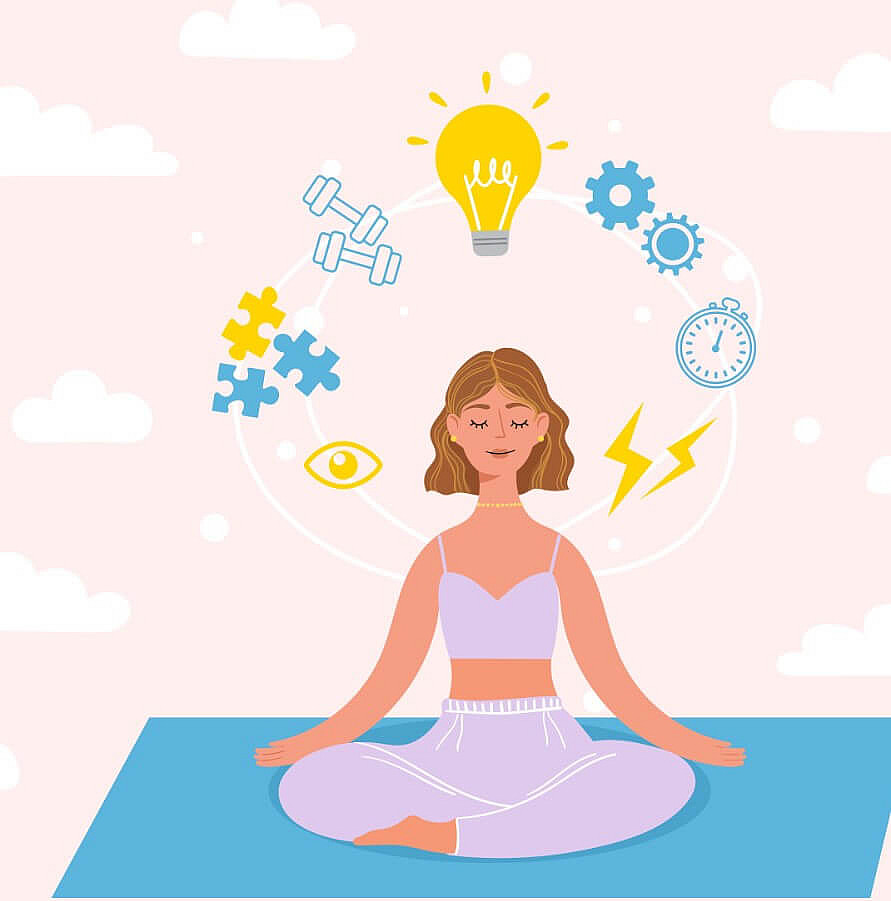Exercises for anxiety

Exercises for anxiety
Anxiety is a complex condition that involves unpleasant feelings and a premonition for negative events. It interferes with focus on current affairs, causes intrusive thoughts, and causes discomfort. Anxiety can be manifested not only on an emotional level, but also physically: a rapid heart rate, increased pressure, sweaty palms and anxiety do not allow to sit still. The person begins to look for ways to relieve these symptoms in order to restore clarity of mind and calm.
Anxiety may resolve on its own or under favorable circumstances, but sometimes help is needed. Special exercises can help people cope with this condition, regardless of where you are at home or at work. These exercises are appropriate for people who are anxious but do not have serious mental health problems that require professional help.
It is important to understand that anxiety is not just a temporary inconvenience. It signals that something is wrong in life and can threaten health, safety or plans. It is normal to experience anxiety in difficult situations, as it helps to prepare for possible difficulties. However, persistent or unfounded anxiety interferes with living a full life, achieving goals, and building relationships with others.
In this article you will find exercises that will help you quickly cope with anxiety and regain control over the situation.
How to recognize and overcome internal complexes
Often a person experiences anxiety without understanding its true causes. People are able to adapt to various life circumstances, even the most difficult and unpleasant. However, when anxiety becomes a constant companion, it can become part of our character, and we stop noticing that life can be more calm, easy and joyful.
If you notice that anxiety is preventing you from living, try the following exercise. It will help you understand which internal complexes may be the cause.
For this exercise, find free time and a place where you can be alone with yourself.
Generally, conscious anxiety is related to a specific subject—it may be an event, a person, or a sphere of life, such as love, career, or children. Take a piece of paper and a pen. Write what you often worry about.

Emotional management
Emotions are the key to understanding and reducing anxiety. When you are troubled, look at your inner feelings. What emotions and thoughts intertwine at this moment, interfering with clarity and objectivity? It may be fear, frustration, despair or unwillingness to face certain events or people. Understanding these feelings helps us understand their causes.
After you have realized your emotions, pay attention to the internal needs. What do you need right now to calm down, focus, think clearly and in an orderly manner, and do things effectively? The answer to this question is your resource status. Identify it and satisfy that need.
It is important to remember that such exercises require time and practice. People may have difficulty distinguishing their feelings from their desires. To learn how to do this, ask yourself questions: "What do I feel?" and "What do I want?" as often as possible. This will help you better understand yourself and manage your emotions.
Ways to improve mental health
To cope with anxiety, try turning attention from thoughts to the body. Breathing practices may help.
Breathing exercise
Close your eyes and focus on breathing. Imagine that the air you breathe is getting color and density. Exhalation can also be visualized.
This exercise helps reduce anxiety before important events, such as a meeting or meeting.
Physical activity
Squats, jogging, or charging can help people shift their attention quickly. When the body is active, resources are allocated to performing movements rather than to experiencing.
Continue exercising until you feel your anxiety has subsided and you can go back to your business.

